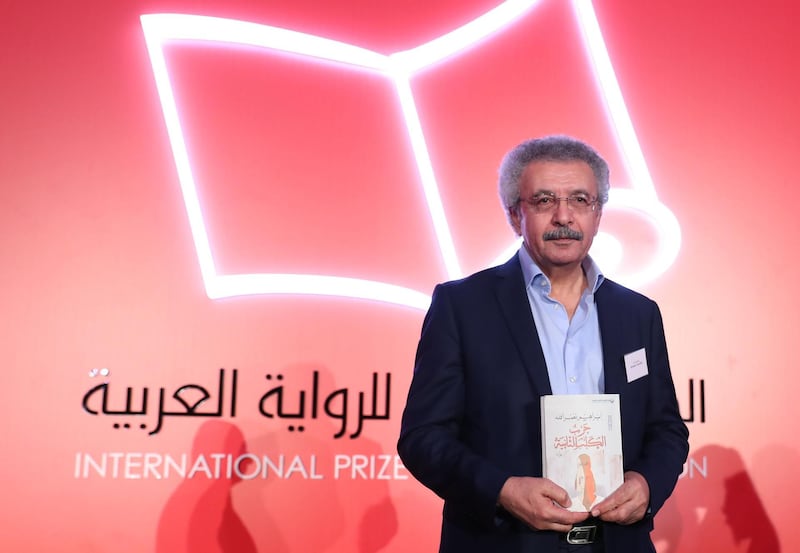In accepting the International Prize for Arabic Fiction, Jordanian-Palestinian novelist Ibrahim Nasrallah cited Shakespeare, the Roman poet Lucretius and the Greek philosopher Parmenides. "Nothing comes from nothing," he said as he walked on stage – and with those four simple words, he encapsulated a literary and philosophical genus both stretching back millennia and crossing cultural boundaries and physical borders. The Ipaf award, originally inspired by the longer-running Man Booker prize and launched to celebrate the best fiction written in Arabic, has only been in existence for 11 years but is already propelling its nominated authors onto an international stage. Long known, read and loved by fans in the Arab world, the quality of their writing is now being recognised worldwide and shedding light on the region's most pressing issues, told in voices from within it. Previous winner Ahmed Saadawi from Iraq, who secured an Ipaf in 2014 for Frankenstein in Baghdad, is on this year's Man Booker shortlist for the English translation of his book. Shahad Al Rawi, who became the youngest author to be shortlisted for IPAF this year for her novel The Baghdad Clock, will next month see her work published in English.
Nasrallah had been nominated twice before, with the third time a charm for his novel The Second War of the Dog. The dystopian novel, set in an unnamed country where an ISIS-like group has seized power, examines the moral breakdown of society through the eyes of its protagonist Rashid. In previous novels, Nasrallah explored the painful legacy of Palestinian oppression. Like other nominees, his themes are universal, his message covering the scope and breadth of the human experience, tales which readers around the world will relate to. His inspiration came, he said, "from the suffering that we have been subjected to in this region and this era of occupation by both a direct enemy and an indirect enemy, as well as the enemy within". It is just one of many stories which, thanks in part to the "Arabic Booker", are helping the world understand and untangle the complex, emotive canon of history and suffering this region holds. It goes hand-in-hand with the Abu Dhabi International Book Fair, which begins this week, bringing booklovers and publishers from around the world to the UAE. Arabic literature is finding a wider audience and the minds of the world's readers are expanding with it.





